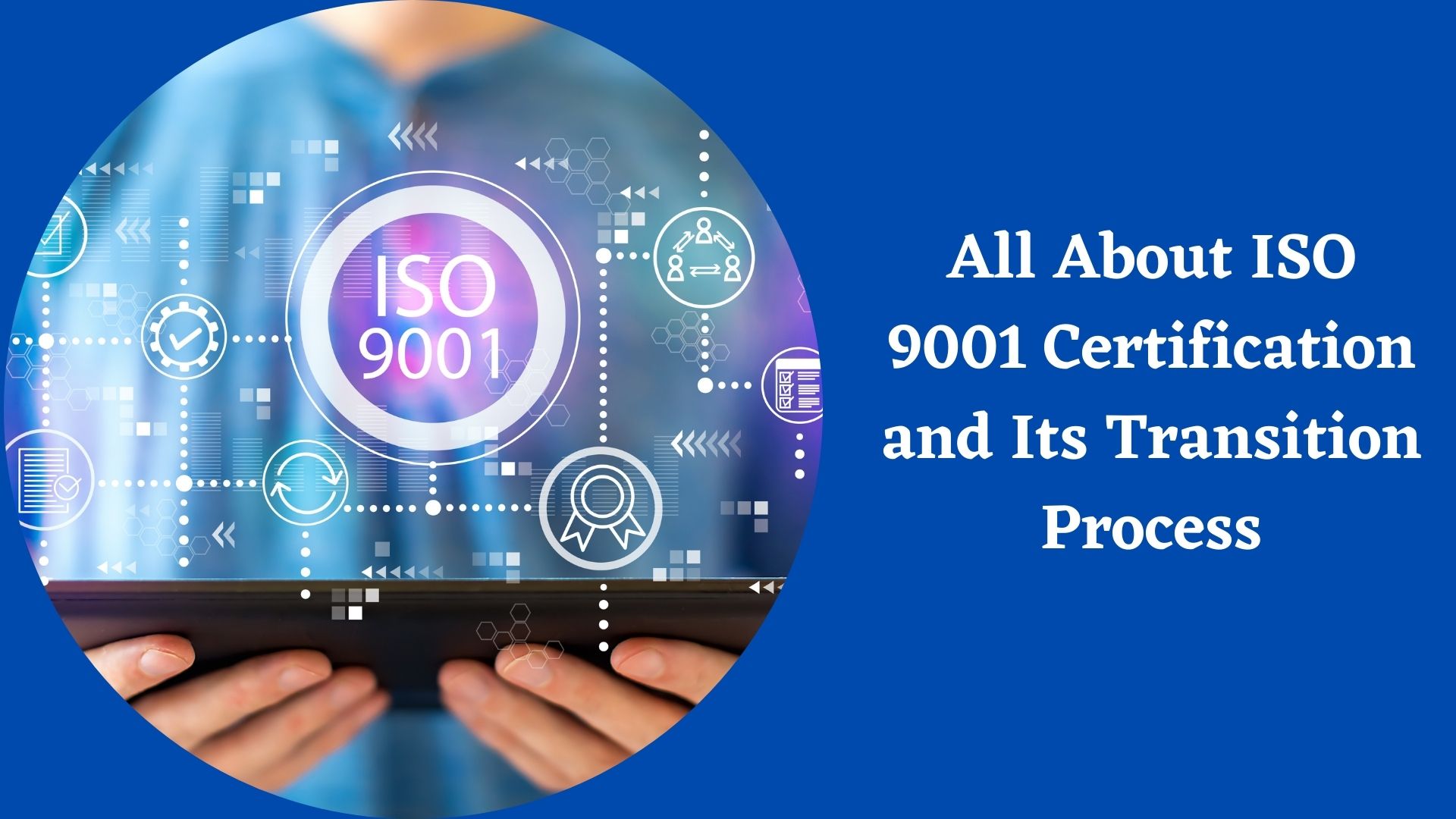This article aims at elaborating the need for ISO 9001 certification in businesses and how they can implement an ISO 9001 quality management system seamlessly.

There is no standard above ISO 9001 for quality management in business. It is implemented by more than one million companies worldwide in over 150+ nations. The enormity of this standard can be felt by this fact. If your organization needs some really effective quality assurance methods, implementing a robust quality management system (QMS) and then getting it validated with ISO 9001 certification is the way.
The purpose of this ISO standard is to aid companies in meeting several important good management practices and other requirements which are directly related to improvement in product or service quality. Thus, achieving the standard will best help your organization to follow many regulations with its QMS that will improve your performance of processes and quality of services/products.
Here are further in-depth details of the ISO 9001 standard and its relevance in quality management.
Fundamental focuses of ISO 9001
There are at least 7 key areas that ISO 9001 quality management standard will help your company to focus on. They are:
1. Customer satisfaction and customer relationship enhancement
2. Steady effort by leaders of management
3. Collective and uniform participation of employees in quality management
4. Systematic process approach
5. Continual improvement of processes and products/services
6. Reason-based and fact-based decision making
7. Development of mutually beneficial relationships with suppliers
ISO 9001 standard will help your organization to focus on these fundamental characteristics with your QMS.
ISO 9001 Certification Advantages for Businesses
Achieving standardized quality management will help your company move towards these remarkable business benefits:
• More cost-efficient business processes by regulating processes and enabling efficiency.
• The establishment of credibility of your business which gives a competitive advantage.
• More repeat customers and increase in sales due to higher customer satisfaction.
• Lowering of resources uses, costs and time of production cycle due to an effective planned/process approach.
• Faster reach to market which results in increasing market opportunities and market share.
• Integration of key internal processes so that they can supervise together for consistent performance and productivity.
• Fewer disruptions in delivery of products or services.
• Improvement in internal communication resulting in smooth planning and administration of processes.
Key Industries Which Can Get ISO 9001 Certified
There is truly no industrial sector or business which is not eligible for ISO 9001 certification—from general retail and manufacturing to hospitality, healthcare, finance, pharmaceuticals, IT and other services. These are just to mention a few. The standard aims chiefly at quality improvement and management in businesses so that they can assure customer satisfaction. Thus, due to its purpose, it is a desired standard for almost all businesses.
Certification Transition Process
The certification journey is a bit complex for every business. There are many changes that a business needs to go through while transitioning to ISO 9001 QMS. They are:
1. Reviewing the new ISO 9001 template and understanding each of its clauses
2. Establishing a structure for its implementation and considering ways to integrate it with other core management systems like environmental management
3. Knowing the process approach well as laid out by ISO 9001 and advocating it across your organization’s members with documentation
4. Training and proper orientation of employees to help them adopt the process approach to derive necessary quality outcomes
5. Setting benchmarks of quality performance through KPIs (key performance indicators) and making strategic planning for achieving them
6. Ownership, reviewing as well as auditing, of QMS by the top-tier management is essential to control its implementation
7. Regular assessment of risks and identifying opportunities for quality improvements in what can be achieved with ISO 9001 guidelines of QMS
8. Ascertaining a clearer approach for customer satisfaction (i.e. collection of feedback,) including improvements in products, addressing complaints, providing refunds, and offering great customer services
Going through all these major changes for implementing ISO 9001 is indeed challenging and so most companies seek for ISO consultancy for navigating these challenges.
Concluding Thought
Obtaining ISO 9001 certification must be a priority for every business in this enormously competitive world! Achieving higher customer satisfaction and winning their loyalty are the main outcomes of this standard as it consistently focuses on improving quality of products/services of businesses. In short, it is needed by any organization that wants to provide impeccable customer experiences and be more efficient in running their operations and delivery.
Damon Anderson is an owner of an ISO certification consultancy agency which provides guidance to entrepreneurs on how to complete ISO 9001 certification and other certification processes. He is a free-time blog writer and mainly discusses ISO 9001 quality management benefits, challenges in implementation, costs for certification maintenance and so on.
Contact Details:
Business Name: Compliancehelp Consulting, LLC
Email Id: info@quality-assurance.com
Phone No: 877 238 5855
Post new comment
Please Register or Login to post new comment.